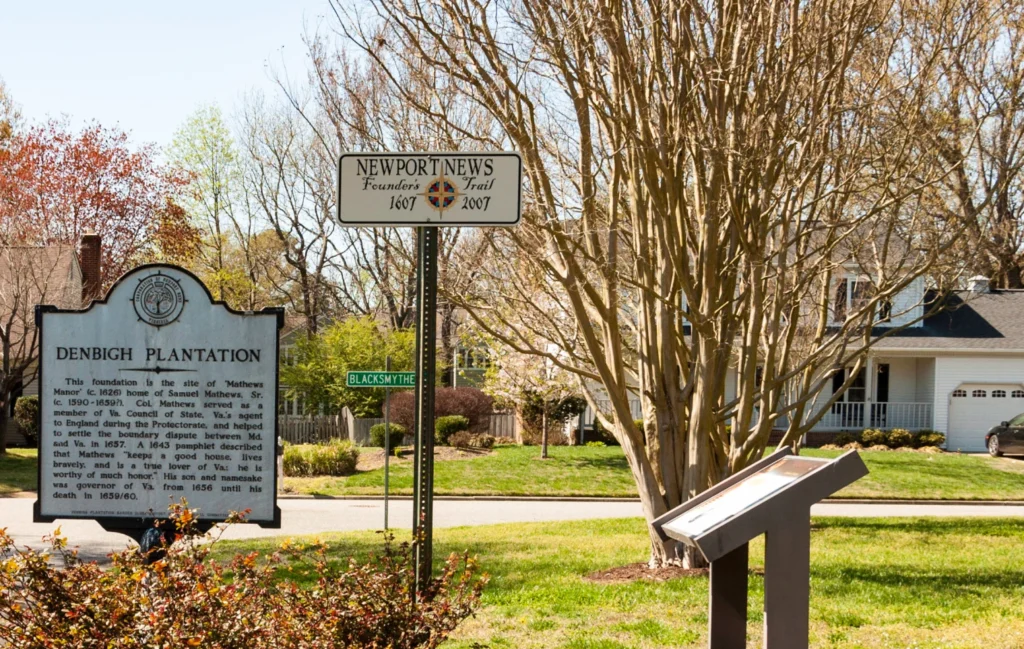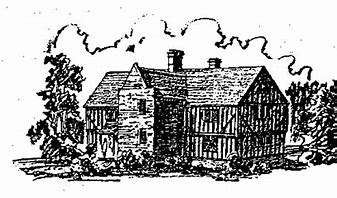
SAMUEL MATHEWS, HERO OR VILLAIN

SAMUEL MATHEWS FOR ELIZABETH 1
Here is another example of a man who could be lauded as a hero or condemned as a villain. Your choice.
Sam Mathews, born about 1580-1590, was almost a middle-aged man by the time he stepped on Jamestown soil. He had been hired by Robert Johnson, one of the two sheriffs of London in 1618. Sheriffs work included helping the judges of the courts. It was, and is, a very prestigious position, unlike the American sheriff who is head of a county-level law enforcement. Robert Johnson, who started as a grocer, had written advertising pamphlets and booklets for the Virginia Company of London. Politically active and a shareholder in the Virginia Company, he was very concerned about colonization across the Atlantic. Sam Mathews represented Johnson, likely, in going to Virginia and helping establish a “hundred” the year Johnson was sheriff.
A hard-worker, Mathews lived for a while at Jamestown. He moved to Shirley Hundred, one of Lord DeLaWare’s estates, with several of Johnson’s employees. Shortly after that, Deputy governor Argall (1617-1618) made him a Captain and put him in charge of men at Harryhattock (possibly Henrico?).
Before 1623, Mathews was a member of the House of Burgesses. In 1624, he was nominated as a commissioner for the Mandeville Commission. This was the Privy Council’s investigation into Virginia’s viability as an independent colony, run by a company. He was both on the side of the colonists and on the side of the King, simultaneously. He walked a thin line. But it was of no use. The recommendations were never considered. The contract with the Virginia Company of London was cancelled and Virginia became a royal colony, owned and operated by the king.
Mathews loved Virginia and put money into its development. He earned land through the “head-right” system: fifty acres of land for every person he paid passage for to the colony. By the late 1620s, he was a major landowner, especially in the area east of Jamestown. This is where Newport News and Norfolk, Va stand today.
By 1628, Mathews was an outstanding man in his own right and, now in his late 30s, was ready to marry. He had known Frances Grenville West, a widow, who had married the younger brother of the Lord Delaware. She remarried a man, Abraham Peirsey, said to be the richest man in Jamestown. But he died two or so years later. She was executix of his estate for his two daughters. It did not take Frances and Samuel to get together. With this marriage came a large estate on the south side of the river, which they renamed Flowerdew. It was to go to the two daughters, one of whom had just married.
Between 1628 and 1633, when Frances died, it is accused, they treated the plantation poorly, moving servants and possessions to Mathews new place, which he named Mathew’s Manor. It was a place of hospitality to all. It quickly became an outstanding little town in its own right, partly to the detriment of the two young ladies who lost their inheritance.
Meanwhile, the new governor, Sir John Harvey, who arrived in early 1630, had plans. He wanted to encourage farms with food stuffs, start settling the southern bank of the York River, build a palisade across the peninsula from the James to the York Rivers, a six mile long project, and get on better terms with the Indians. The Governor’s Council, of which Mathews was a member, was not entirely on board. Harvey was not one to negotiate. He handled the Council by being alternately generous and cruel to members.
With Mathews, he offered the man a year of tax-free shipping of his tobacco. Mathews built up wealth with that year. In return, Mathews built, with colonial backing of over a million pounds of tobacco, a fort at Point Comfort, the eastern-most end of the James River as it emptied into the Chesapeake. Mathews also assisted in building the palisade, which would keep the cows in the English portion of the peninsula and keep the Indians out.
In 1633 and 1634, several things happened to get Mathews into deep trouble with the governor. His wife, Frances, died, leaving him with a toddler and a newborn. With her death, Abraham Piersey’s plantation, Flowerdew, had no executrix. One of the daughters, Mary, and her husband, Thomas Hill sued Mathews. He, having more important things to do, ignored it. The lawsuit and its variants continued for almost five years.
The other problem was the settling of Maryland, which led to skirmishes between the Catholics and Mathews’ friend William Clayborne, who was told that his trading post on Kent Island was no longer in Virginia, but Maryland. Mathews’ love of the English did not extend to Catholics. When Harvey was given orders to help Baltimore’s Catholic settlers in Maryland, Mathews was most insistent that he would not. He threw his hat on the ground and swore. For a year, the governor and the Virginia colonists had a verbal battle going over Harvey not supporting the colonists vs Harvey supporting the king’s wishes.
This all came to a head in late April, 1635, when several men, Francis Pott, Nicholas Martinau and William English, got arrested for complaining about Harvey to a packed house. Harvey called for an emergency meeting of the Council. The majority felt the arrested men had the right to complain. Harvey wanted to jail them and declare martial law. The afternoon ended with Mathews, John Utie, William Pierce, George Menifee and John Pott participating in arresting Harvey for treason and putting him under house arrest. None of their actions were allowed under English law. But they went on to have Harvey impeached and sent him to London to face trial.
Harvey was sent back by the king who ordered Mathews, Utie, Pierce and Menifee sent to London for trial. They waited a year plus in London and the trial was ultimately dismissed.
In the meantime, Governor Harvey allowed the Peirsey daughters to ransack Mathews’ place and take anything they could identify as theirs or their father’s. Harvey married the older sister, Elizabeth, who had been widowed, with young children. She sold her half of the inheritance, land. The younger sister, Mary, could not improve her land and house. It was too far gone.
Mathews, who had married Sarah Hinton in the meantime, brought his little family home from England to a damaged house. He went on to remodel his home and plantation where his boys could grow up safely. Mathews and his wife became a major source of hospitality in the early colony.
He outlived the other three men who went with him to London. He became a Councilor and a representative to London until his death in 1658. And he saw his son, Samuel Jr. become the governor of Virginia in the late 1650s.


Recent Comments